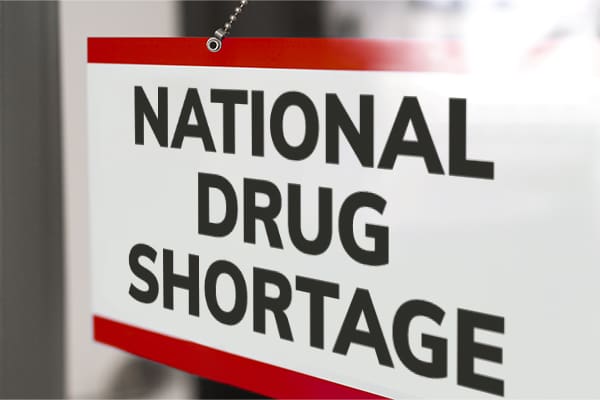
Several important chemotherapy drugs have recently landed on the national drug shortage list. The shortage has caused months-long waits for some treatments, which can have serious consequences for cancer patients.
Unfortunately, two key mesothelioma drugs are part of the shortage. To help patients process this situation, we summarized the important facts below.
1: Shortage Affects Carboplatin and Cisplatin
Cisplatin landed on the national drug shortage list in February, and carboplatin was added in April. Manufacturers cited increased demand as a driving force behind the shortages. But some experts have raised other possibilities, including the drugs’ low profit margins.
More than half of pleural mesothelioma patients receive systemic therapy. And one of the most common systemic regimens includes either cisplatin or carboplatin. These chemo drugs are a mainstay of mesothelioma treatment and have extended survival for thousands.
A lack of access to cisplatin or carboplatin could negatively impact prognosis. But doctors and cancer centers are working to reduce the effects of these shortages.
2: Healthcare Providers Are Trying to Ensure Access to Treatment
Doctors and hospitals are doing their best to ensure patients get the treatments they need. One center in Florida started rationing carboplatin months before the shortage made the news. They gave patients slightly lower doses than normal but not enough to make the drug less effective.
Some experts have also recommended keeping treatment cycles as long as possible. So if guidelines say to give carboplatin every three to four weeks, the patient should receive it every four weeks.
We encourage all patients worried about these shortages to talk to their treatment teams. Shortages may differ, even between cancer centers in the same general area. Local providers can help patients find and get the right treatments, despite the shortage.
3: You Can Help by Contacting Legislators
Legislators are aware of cancer drug shortages and some of their causes, but hearing from constituents may encourage them to address these issues. You can contact your representatives and senators to share the personal impacts of these shortages.
You can also work with Angels for Change, an organization dedicated to fighting drug shortages. Together, we can all take small steps to help ensure people have the cancer drugs they need, when they need them.




